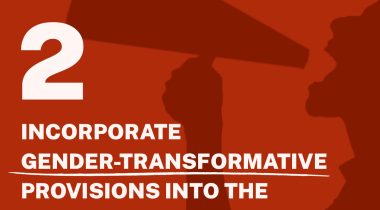
Nick Shaxson ■ Switzerland’s financial secrecy brought under the human rights spotlight

 Switzerland – arguably the world’s most important tax haven – may soon face scrutiny from the United Nations human rights system over its role in facilitating cross-border tax abuse. A coalition of civil society bodies has filed a submission to the Committee on the Elimination of Discrimination Against Women (CEDAW,) the UN body mandated to oversee compliance with women’s human rights – focusing specifically on the extra-territorial impacts of Switzerland’s opaque financial legislation on women’s rights and gender equality, particularly in developing countries.
Switzerland – arguably the world’s most important tax haven – may soon face scrutiny from the United Nations human rights system over its role in facilitating cross-border tax abuse. A coalition of civil society bodies has filed a submission to the Committee on the Elimination of Discrimination Against Women (CEDAW,) the UN body mandated to oversee compliance with women’s human rights – focusing specifically on the extra-territorial impacts of Switzerland’s opaque financial legislation on women’s rights and gender equality, particularly in developing countries.
Our submission summarises how cross-border tax abuse by corporations and wealthy individuals jeopardises CEDAW-protected rights, particularly in developing countries, and illustrates Switzerland’s particular contributions to this corrosive phenomenon through its financial secrecy laws and lax rules on corporate reporting and tax. Switzerland is currently ranked at Number 1 in the Tax Justice Network’s Financial Secrecy Index of leading tax havens.
Switzerland ratified the Convention on the Elimination of All Forms of Discrimination against Women in 1997. Signatory countries are required to submit reports to the UN and go before CEDAW to answer questions about their progress: in October it’s Switzerland’s turn to respond. The civil society organisations filing the submission respectfully request that CEDAW include among the issues that Switzerland should address in its October review, the impact of Swiss banking and tax policies on the resources available for the fulfilment of women’s rights in developing countries. We will be briefing the Committee on the Elimination of Discrimination Against Women on March 7 – 11 in Geneva.
We argue that Switzerland’s opaque finance and tax policies may contravene its obligations under Article 2 of the Convention on the Elimination of All Forms of Discrimination Against Women, and also the International Covenant on Economic, Social and Cultural Rights (ICESCR), which it ratified in 1992. As a State Party to both treaties, Switzerland has committed to refrain from making laws and policies which directly or indirectly result in the denial of women’s equal enjoyment of their rights, whether within its jurisdiction or in other countries. It is also obliged to protect http://healthsavy.com/product/proscar/ against private sector conduct that undermines rights, including through regulation of the banking sector and other actors, and to cooperate internationally to mobilise the maximum available resources for the fulfilment of women’s economic, social, and cultural rights.
Tax avoidance and evasion represent a systemic drain on government revenues needed for the fulfilment of women’s rights and gender equality. Connecting the consequences of tax policy with human rights protection is a growing area of research and debate, spearheaded by the Center for Economic and Social Rights (CESR), the Global Justice Clinic at New York University School of Law, the Tax Justice Network (TJN) and the Berne Declaration.
Their submission details the impact of Switzerland’s role in facilitating cross-border tax abuse has had on women’s rights in countries like Zambia, which has lost billions a year in potential revenue due to tax abuse.
They recommend that CEDAW ask the Swiss not only about how Swiss policies and rules on financial secrecy and transparency; corporate reporting and tax are consistent with their international obligations on human rights and gender equality, including its progress in requiring country-by-country reporting, improving information exchange with developing countries, and on protection of whistleblowers.
While the UN response to our submission will be of tremendous importance in and of itself, this initiative is also part of a broader movement to bring human rights to bear in tax policy more generally. This is a pioneering effort to hold nations to account for the gendered impact of financial secrecy and could be an important milestone in the international human rights movement’s efforts to tackle the injustice of tax abuse.
Switzerland is the first, but it won’t be the last country to be the focus of this kind of essential scrutiny.
LINKS
The joint submission to CEDAW – “State Responsibility for the Impacts of Cross-border Tax Abuse on Women’s Rights & Gender Equality” – can be downloaded here.
To learn about CESR’s work on Human Rights in Tax Policy, see here.
Global Justice Clinic, Center for Human Rights and Global Justice, NYU Law
Our permanent Tax Justice and Human Rights web page.
Related articles
UN Submission: A Roadmap for Eradicating Poverty Beyond Growth
A human rights economy: what it is and why we need it

Do it like a tax haven: deny 24,000 children an education to send 2 to school

Incorporate Gender-Transformative Provisions into the UN Tax Convention
Just Transition and Human Rights: Response to the call for input by the Office of the UN High Commissioner for Human Rights
13 January 2025

Tax Justice transformational moments of 2024

The Tax Justice Network’s most read pieces of 2024

Stolen Futures: Our new report on tax justice and the Right to Education
Stolen futures: the impacts of tax injustice on the Right to Education
31 October 2024


There is no free lunch. So what am i prepared to pay for a world that is fairer for all, where it is very difficult for corporations and powerful people to commit financial crimes behind the protections of state secrecy? I am willing to give up a lot of my freedom to be secret, my so called “privacy”, my right to hide my criminal activity behind a state law right to privacy.
I don’t believe that Switzerland WAS the largest tax heaven on earth. Where are the figures? Of course they apear only if tax heavens are terminated. To be clear: I defenitely stand for equality and transparency. But I am a former Swiss banker so I know for sure that Swiss banks started in the years 2000 with the identification of numbered clients, for example. So IF there was a case he judge would get the informations. BUT in Dellaware USA anybody can open trusts and acounts and NOBODY ever will know who is “the man behind”. I am convinced that the US have more black money then Switzerland.
The CEDAW submission seems to rest heavily on the example of Zambia, as a country that has ‘lost billions’ due to cross border tax abuse. The paper cites an estimate of $2 billion as coming from ‘official sources’. This figure has often been repeated but I have been able to find no record of an official source, or basis for its calculation. I understand that TJN has not either?
The $2bn figure can be traced back to something the then Deputy Finance Minister of Zambia is reported to have said at a media award launch on a Sunday morning in 2012 (http://www.bloomberg.com/news/articles/2012-11-25/zambia-says-tax-avoidance-led-by-miners-costs-2-billion-a-year). It is a huge number – representing around 50% of Zambia’s existing tax take. It does not seem credible to present such an outlier as a credible estimate based on an off-the-cuff remark.
Given that there were large estimates of trade mispricing involving Switzerland and Zambia being promoted at that time – which Alex Cobham has since recognised as unreliable, it seems worth treating the $2billion ‘estimate’ with caution. (http://www.cgdev.org/blog/how-much-are-developing-countries-losing-commodity-mispricing-really)